Food Writing is her "Bread and Butter"
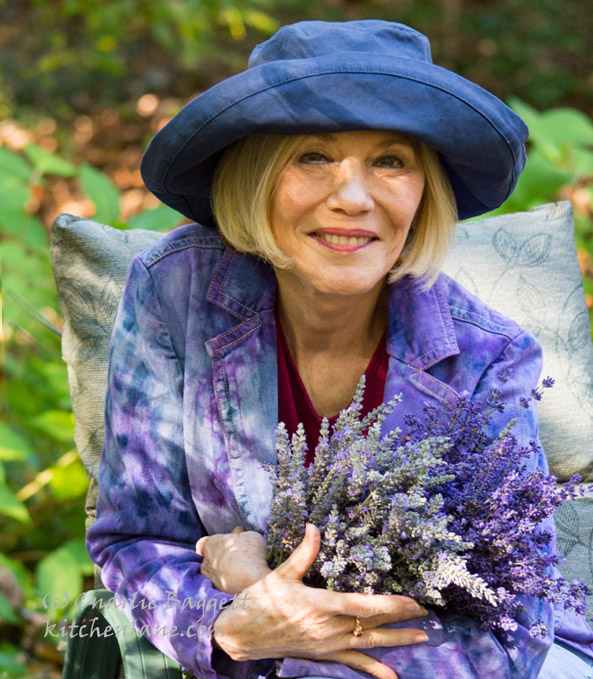
Award-winning author Nancy Baggett ’65, discusses her career.
Q&A with Nancy McAdams Baggett '65
Graduation Year
1965
Program
- English (B.A.)
Nancy Baggett ’65 has had a remarkably prolific career writing award-winning cookbooks. Her articles have been featured in major publications like Bon Apetit and Food and Wine, and she has given interviews to the likes of NPR and the Today Show. Baggett has authored or co-authored more than 20 cookbooks, several craft books, four children’s popular science books, a novel and scores of food, how-to and feature articles in her more than 50-year writing career.
She lives with her husband Charlie in Ellicott City, MD, and enjoys tending a small culinary lavender patch. You can find many of her cookbooks on Amazon or see more of her work and blog at kitchenlane.com, nancyslavenderplace.com and her culinary lavender newsletter. We asked her about her writing process, developing recipes and her memories from Hood.
When did you first become interested in writing cookbooks? Was there a recipe you developed that set you on this path?
My road to cookbook writing began as soon as I could read. I was utterly captivated by my mother’s modest stash of cookbooks and spent many hours poring over them, learning techniques and imagining how the dishes would taste. By the time I was 9, I was regularly trying out recipes. Much later, after I’d graduated from Hood and was “retired” from several years of fairly tedious technical writing jobs, I began freelance food and general feature writing for the local Columbia Flier newspaper.
I’d always enjoyed cooking and found that I loved creating food stories that whetted appetites, called readers to action and provided them enticing recipes to try. Gradually, I began freelancing for national food publications, including Bon Appetit, Gourmet and the Washington Post Food Section, which gave me the credibility to propose and write cookbooks for major publishers. Realizing that I needed to bolster my culinary skills, I took a year-long professional pastry course with the White House Executive Pastry Chef Roland Mesnier in 1993. I still love writing cookbooks; I just published my latest, Best-Loved Lavender Recipes, this July.
At Hood, you earned your B.A. in English; when you chose this major, did you have aspirations of being a professional writer?
Yes, I absolutely wanted to be a professional writer. But I realized early on I could not plot my way out of a paper bag and didn’t have much knack for character development. So, I knew I didn’t have any spellbinding novels in my future! What I vaguely envisioned was writing “think” pieces, reviews or feature stories that required intensive research, thoughtful analysis and clear, concise, elegant prose. At the time, I didn’t foresee doing how-to writing or food and recipe writing, which, ironically, have been my (ouch!) “bread and butter” for more than 50 years!
Which Hood professors had the most impact on you?
I credit my freshman English composition professor, Dr. Osborne, with teaching me to always aim for clear, concise, focused prose. She thought wordiness and long-windedness were crimes, and that readers would punish you for these by nodding off or closing the book and never returning. I came to agree, but writing “tight” doesn’t come naturally to most people, including me, so I learned from her to ruthlessly edit. To this day, through multiple drafts, I continuously cut extraneous material and pare down my prose. The process is like boiling down a watery stock; what starts out insipid eventually becomes strong, powerful, even irresistible.
Describe your typical recipe development process, from inspiration to publication.
Especially with baked goods, one of my specialties, the texture and appearance are critically important to overall appeal, so I usually begin by envisioning these components right along with the taste and select my prototype accordingly. For example, I decide whether I want my new lavender tea cookie to be crispy-chewy, sandy-crunchy or velvety-soft and go to a recipe formulation that delivers the desired characteristics. I’ll adjust the flavor profile by adding or subtracting ingredients I think will build in the taste and aroma desired, then print out and test this “best guess” exactly as written. I note the results and any changes resulting from testing on both the typed, dated recipe and the computer original. Each updated version tested gets stapled on top of the last. Typically, I make a dish three to five times before I decide it’s a 10, but some fancy desserts take more than a dozen tests. Changes like more lemon zest, less sweetness, moister texture, more vanilla, more browning, smoother icing and hundreds of other such improvements are sometimes needed to reach the desired end result. My most astute taste-tester, my husband, understands the quality I’m striving for, so he will often say, “It’s good enough for me to eat, but not good enough to publish!” Back to the kitchen the recipe goes for more refining.
The recipe development process varies a lot depending on whether the dish is one I’m familiar with or something new. About 13 years ago I committed to creating totally new recipes using the culinary herb lavender. I had never cooked with it and could only guess what ingredients or dishes it paired well with or might enhance. So, I began just by trying out lavender with as many dishes and ingredients as I could think of: Honey, yes, cider vinegar, no; ginger, yes, nutmeg, maybe; pomegranate, yes, kiwi fruit, no; gingerbread spice blend, yes, yes, poultry seasoning, no. Once my knowledge of the key flavor affinities was in place, I was then able to go to my data base of thousands of previously created well-tested recipes to choose a starting point for new lavender recipes.
What was your first published work? Did it inspire you to keep writing?
My first published “work” was a short Mother’s Day tribute to my mother that won a high school writing contest and ran in the local weekly newspaper. Perhaps unsurprisingly, the essay was a bit sappy, but it included a pleasing metaphor—which may have factored into its selection. Seeing my by-line and knowing that others would too was exhilarating, and even with hundreds of by-lined articles and nearly 30 various non-fiction books behind me, I still get that by-line thrill today.
What do you enjoy most about writing? Conversely, what do you enjoy least about it?
With food feature stories and cookbooks, I love envisioning how the various parts—intro text, recipe headnotes, historical notes, sidebars, tips and photos—will interweave to form a whole enticing culinary world for the reader to explore. I occasionally get emails or comments from readers who tell me they’ve been enjoying learning the culinary lore or making recipes from a particular book for decades, so I know my work has enriched lives. That’s extremely gratifying.
What I enjoy least is facing that blank page or screen every time I begin a new work. It’s painful! My trick is to just to make myself write a sentence, even if it’s an off-the-wall thought that occurs. Instantly, I’m then engaged, editing verbiage, deciding I’m off on the wrong track or realizing that a sentence is really the starter for another paragraph. This is how I slowly, arduously build my first draft. Once it’s done, I have a much clearer vision of what needs to be covered and in what order. I actually enjoy working on later drafts where the task is polishing—trimming and adding word plays and more elegant phrasing is fun.
What advice would you give to current Hood students or a fellow alum who aspires to be a professional writer?
A mistake I made was never asking myself what I wanted to write about. And I didn’t stumble upon the answer until I was out of college. Anyone who wants to be a professional writer should think about what kind of writing really appeals and is feasible, and if possible, try it out. For example, if you’re interested in a career writing political speeches, involve yourself in campaigns and seize any opportunities to contribute material and learn from the writers on staff. If you think you’d like to be a reviewer or commentator on art, music or any other field, become deeply educated on the subject and perhaps start writing pieces for your own blog or channel. Your knowledge will help you write more articulately, and your output will demonstrate that you’ve got not just the desire but the skills. Remember, too, that the more how-to stories, theater reviews or news features you write, the better you’ll get; communicating the written word effectively and efficiently requires a lot of practice. Your writing is also an investment; while most people get hired because of what they say, writers get hired because of what they’ve written.
Since the elephant in the room for all writers these days is ChatGPT, here are some insights from my computer scientist son on how it will likely affect our business. He feels its impact will be profound and enduring, and that the current ethical discussions on whether using it is “cheating” will be swept aside by practical considerations. He predicts that writers who don’t take advantage of the mind-boggling researching and efficient draft writing tools it offers will be unable to compete with the productivity of those who do and will be left behind. The advice is: learn how to use it to help your process. Also, understand its limitations; the human in charge, you, are responsible with verifying the content veracity. Finally, learn to impose your own writing style and tone upon it to make the encyclopedia entry kind of writing more “you.” People still prefer to read what other human beings have written.
Some of Nancy Baggett's Cookbooks
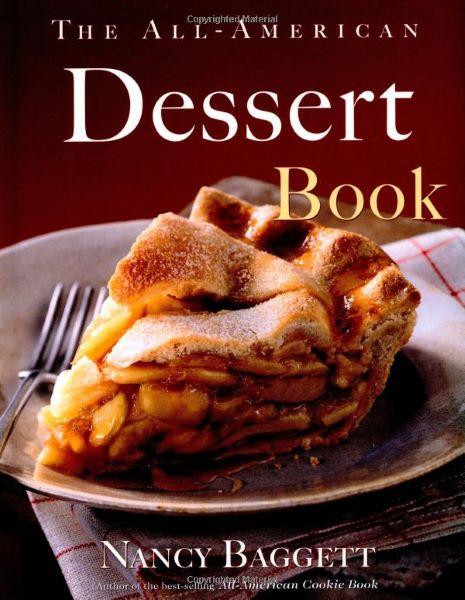
The All-American Dessert Book, by Nancy Baggett
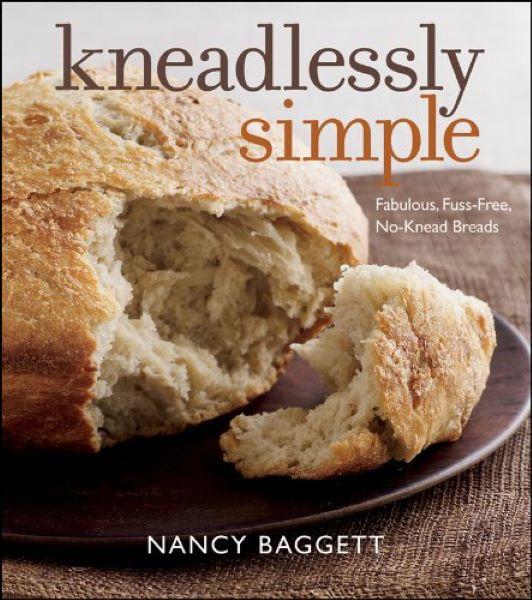
Kneadlessly Simple: Fabulous, Fuss-Free, No-Knead Breads; by Nancy Baggett
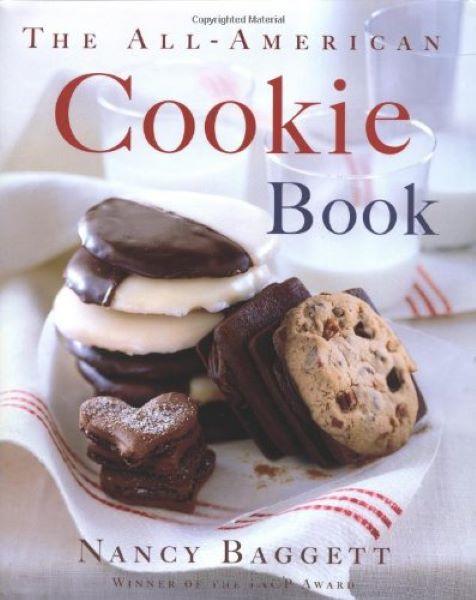
The All-American Cookie Book, by Nancy Baggett
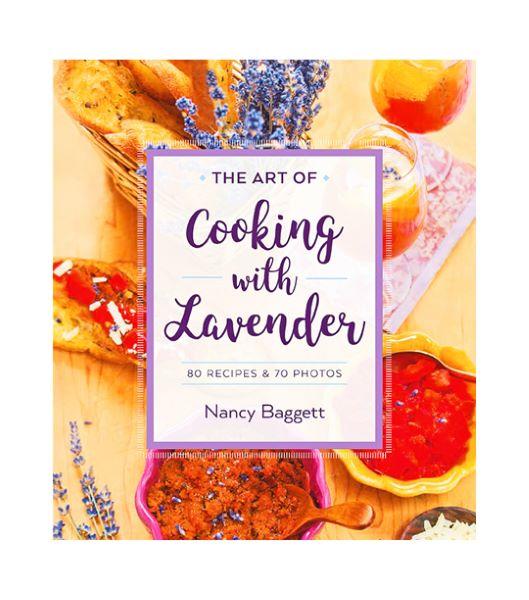
The Art of Cooking With Lavender, by Nancy Baggett
Are you ready to say Hello?
Choose a Pathway
Information will vary based on program level. Select a path to find the information you're looking for!
